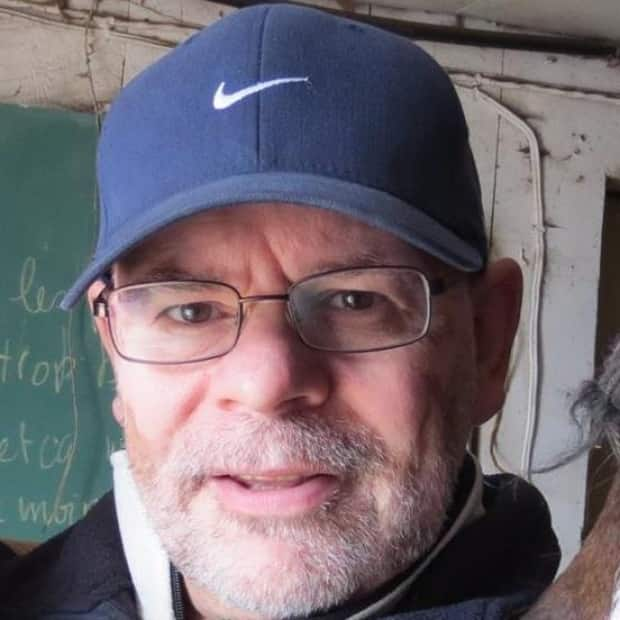11 Quebec towns will be without a mayor after elections

After 16 years of municipal politics, including 13 as mayor, Jean Bergeron was ready to hang up his skates.
No one, on the other hand, offered to put them on after him.
So the 62-year-old retiree will serve yet another term as mayor of Lotbinière, Que., a town of about 800 people on the southern bank of the St. Lawrence River, about halfway between Trois-Rivières and Quebec City.
If he didn't, the town would be one of 11 in Quebec without a mayor come the Nov. 7 election because there are simply no candidates willing to take on the job.
However, five out of the six council seats remain vacant in Lotbinière.
Coun. Philippe Jean is the only one who decided to stay on for another four years, knowing there would be no one to replace him if he didn't join the mayor in another mandate.
"Young people should get interested," he said. "It's your future. You're making your surroundings better and building your community for your retirement as well."
Bergeron said he will be among the many municipal leaders in Quebec working to attract more people to hold office.
"We will have to be inventive in our way of communicating with citizens," he said.
"To demonstrate the beauty of the challenges ahead and the richness of what we get out of it as an individual. Because there are not only difficulties, there is also something very rewarding about serving our community."
He said many people don't want to run because they don't want to face the criticism from the public. Social media makes it much easier for people to hurl insults at political leaders, and there are cases of high-profile candidates in Montreal bowing out for that very reason.

Trying to get people interested in politics
But it's not just the online atmosphere that is making people hesitate.
"I've heard from a lot of people who are leaving because they are fed up with attacks. Damage to vehicles and things like that," said Scott Pearce, vice-president of Fédération québécoise des municipalités (FQM).
He is also the mayor of the Township of Gore, Que., about 100 kilometres north of Montreal.
Pearce said it can be particularly challenging in small towns where everyone knows each other.
He says the FQM is focusing on attracting more women and young people to run for office.
"We even have a program where some of the elected folks will take them under their wing and show them the ropes so I think that's good for the future," he said.
People too busy to hold office
The low salary of holding municipal office in a small town coupled with busy lives can also be a turn off for people these days.
In Lotbinière, for example, the mayor gets paid about $17,000 per year.
For people like Sonia Lavallee, acting mayor of Blanc-Sablon, Que., there's just not enough time to run the town and work full time.
She took over as mayor when Wanda Beaudoin died on June 13. The town sits near the border with Newfoundland and Labrador.

Lavallee works as a teacher by day, and was willing to be mayor over the summer because she had the time off, but it's impossible to attend daytime meetings while working full-time.
"It's not going well," she said. "I do what I can after working hours and at night."
She said the mayor is usually required to be at the office 25 hours per week. She's not running for office, so on Nov. 7, the town will have no mayor.
Lavallee said candidates still have time to put their names in to run for the mayor position. If no one steps up, one can be appointed by council.
"We had expected there would be more people interested in participating," she said. "It's kind of disappointing.
Without a quorum, province eventually steps in
Janick Houde, spokesperson for Quebec's Ministry of Municipal Affairs, if there is no candidate for a position, the returning officer must repeat the election for that position.
The returning officer issues a new election notice and a new campaign begins. The process can only be restarted once, Houde said.
"If there is still no candidate, the returning officer advises the minister who can order a second restart or appoint an eligible person to the position concerned," she said.
"The current mayor then remains in office until a new mayor is elected and sworn in following a new ballot or following an appointment by the minister."
During this process, the outgoing mayor can always resign, she said.
If there is a quorum on a municipal council (the minimum number of members of a deliberative assembly), the other members of the council continue with the administration of the municipality.
In cases where a mayor's seat is vacant in the middle of a term but there is still a quorum, councils can appoint a mayor.
In the absence of a quorum, the municipality is administered provisionally by the Commission municipale du Québec, she said.
As of Oct. 13, the towns in Quebec that still don't have a mayor running for office include:
Les Méchins
Saint-Éloi
Saint-Épiphane
Sainte-Hélène-de-Kamouraska
Saint-Cyrille-de-Lessard
Notre-Dame-du-Rosaire
Lotbinière
Saint-Albert
Latulipe-et-Gaboury
Pointe-Lebel
Blanc-Sablon
According to Radio-Canada, 105 mayors across the province ran unopposed this year and are being re-elected without a vote.

 Yahoo Movies
Yahoo Movies 
